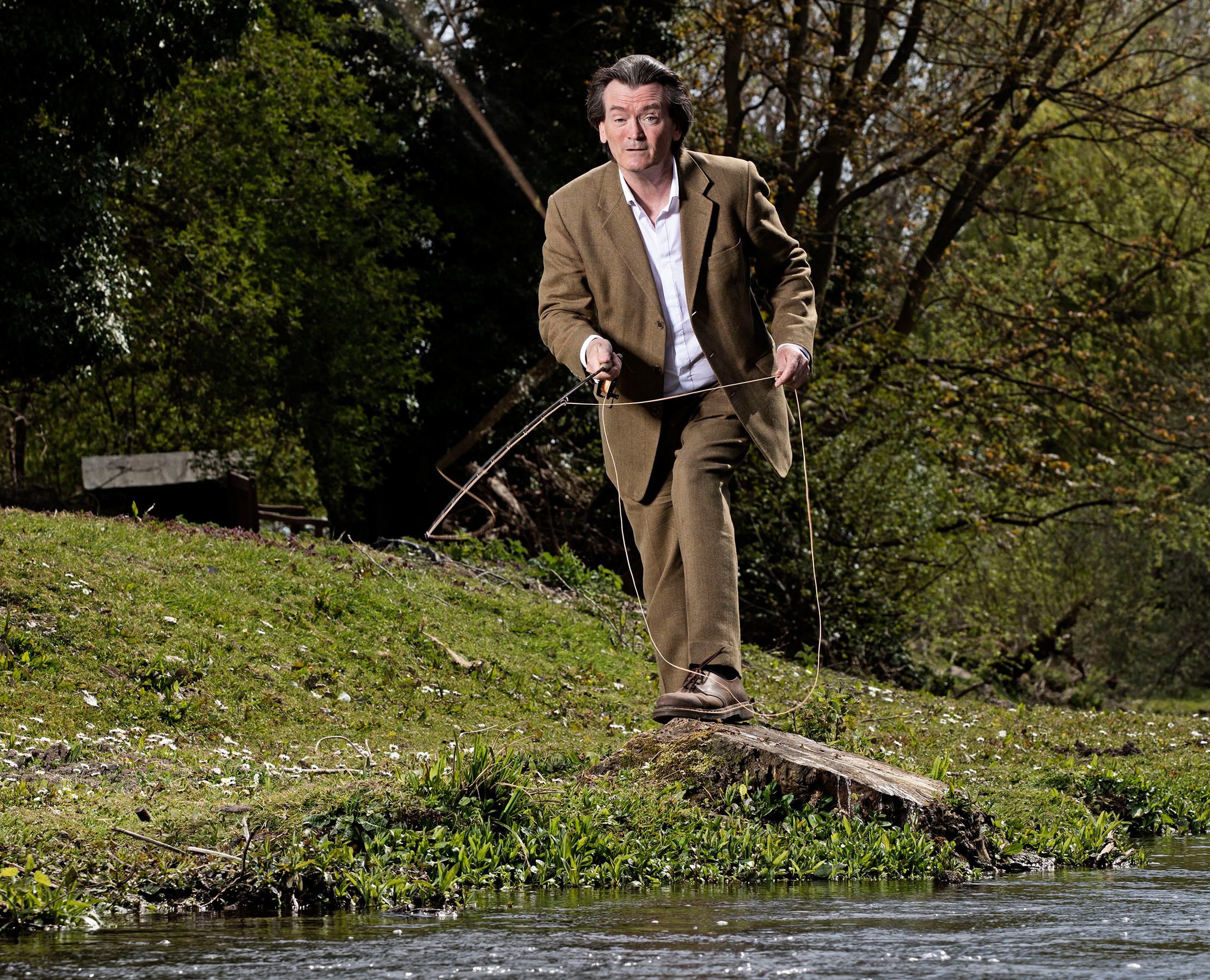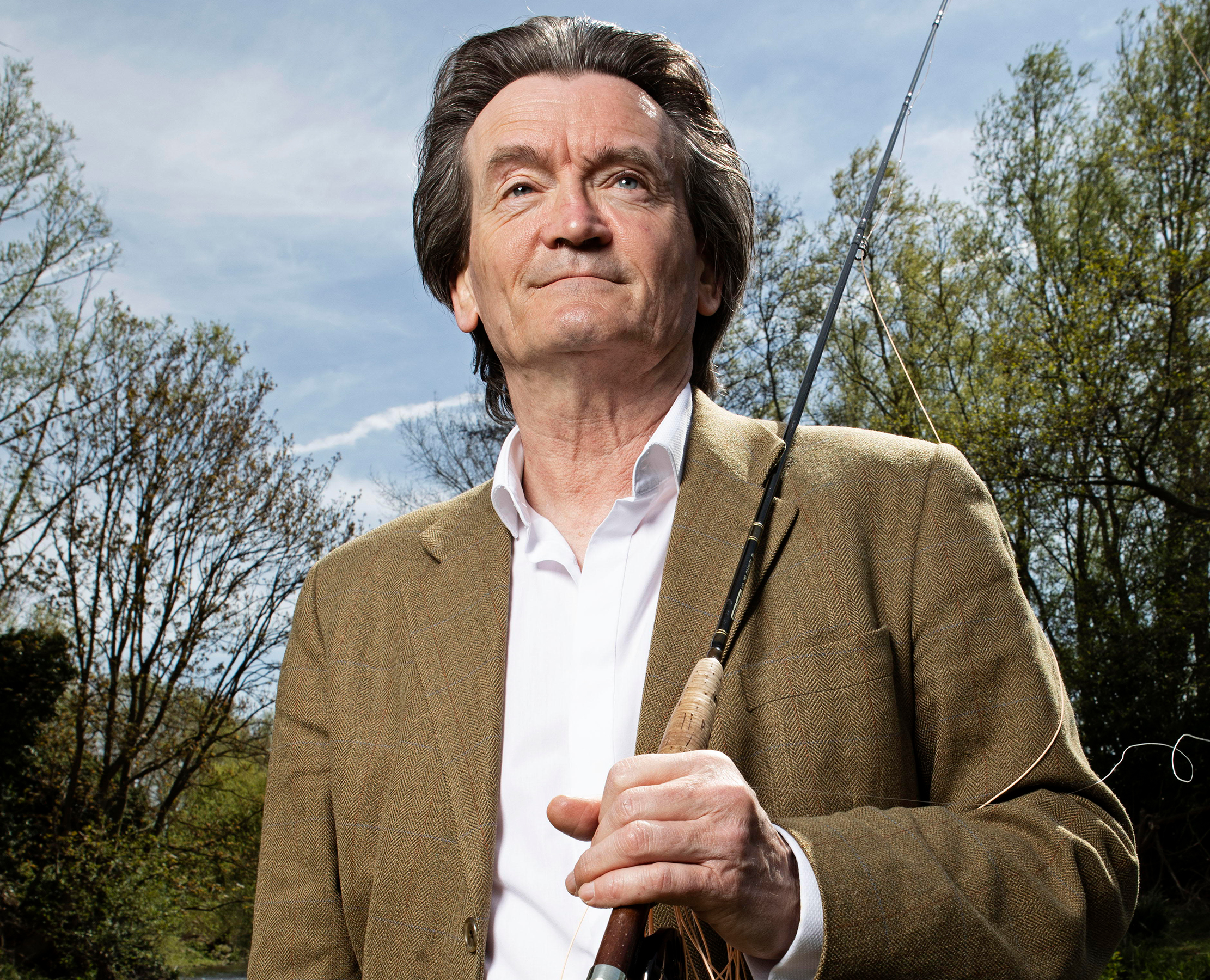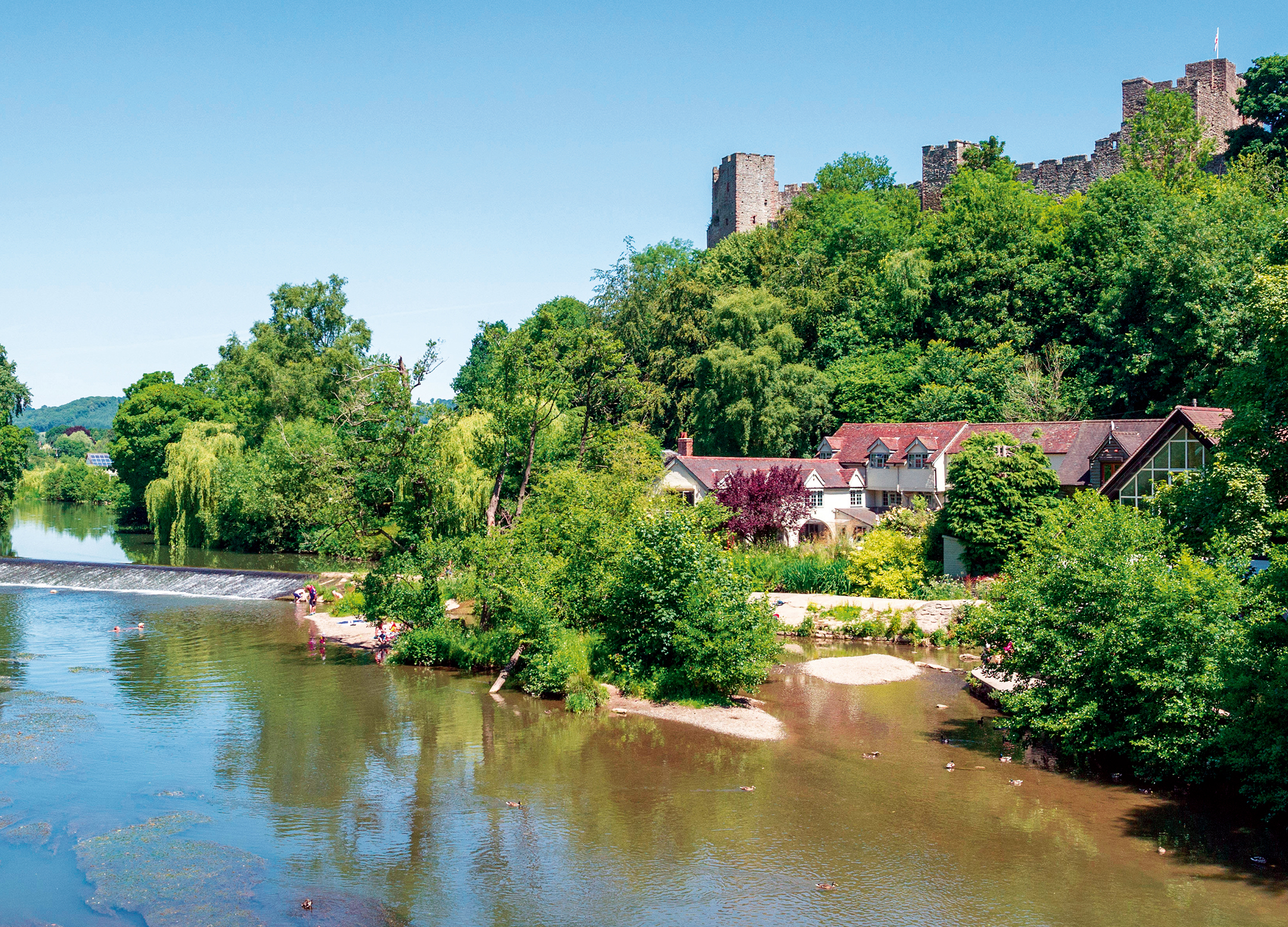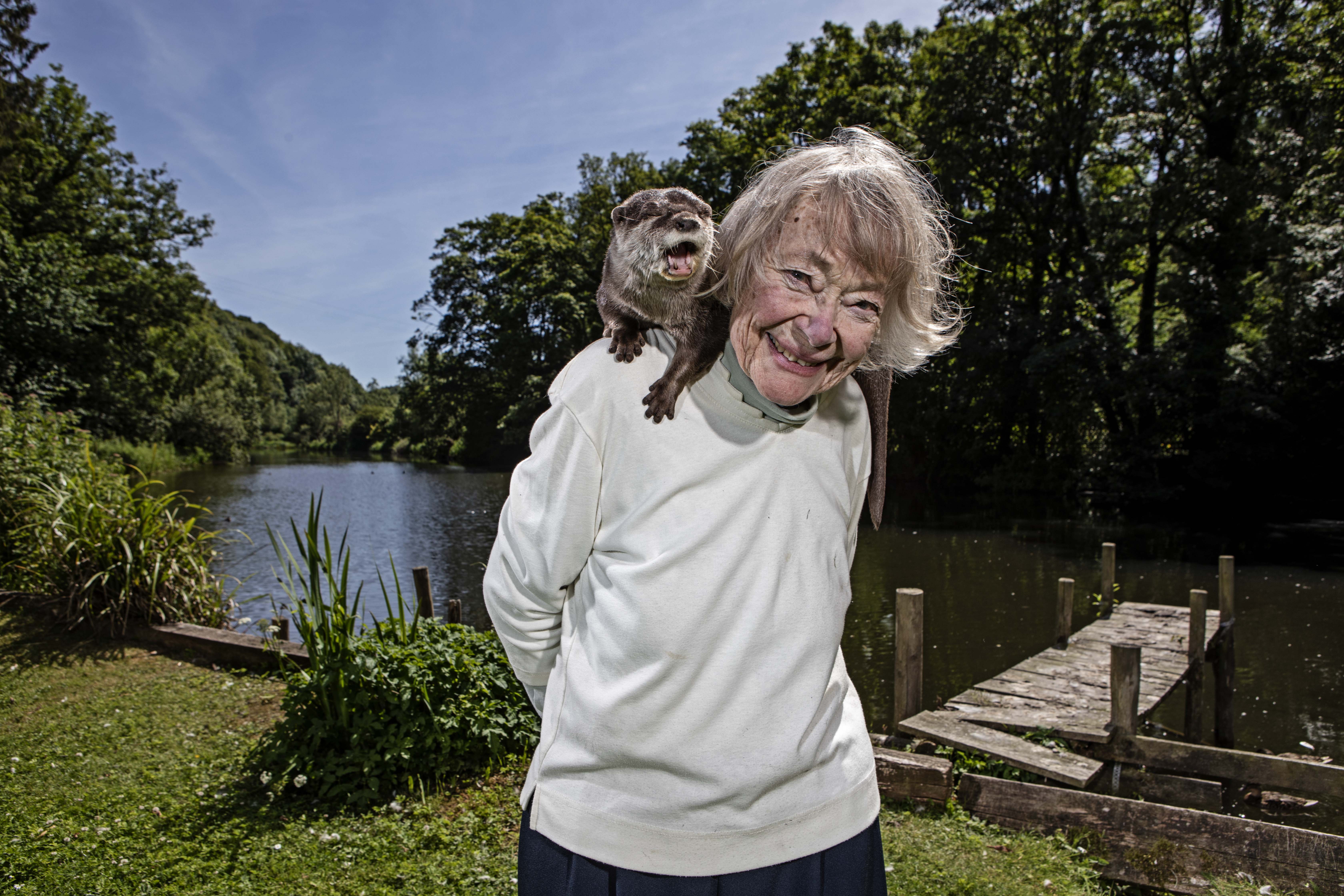Feargal Sharkey: From Top of the Pops to crusading for Britain's rivers
Feargal Sharkey, one of the most recognisable pop voices of the 1970s and 1980s, talks to Country Life about his life, his passion for fishing, and how campaigning for clean rivers has become an obsession.

Paradise comes at a cost: you must defend it. This is my uppermost thought as I walk along the River Lea, outside the Hertfordshire village of Stanstead Abbotts, with Feargal Sharkey. Trout are rising, water voles are scuttling, a kingfisher is reported downstream. The scene can’t look so different from when Izaak Walton walked to Amwell Hill in The Compleat Angler, but that is only because this stretch of the river is owned by the Amwell Magna Fishery, the oldest angling club in the country. It pursued the Environment Agency (EA) to the doors of the High Court a couple of years ago to compel it to fulfil its legal obligation to protect water quality.
The fishery employs two men full-time to ensure that the river remains as beautiful and biodiverse as it can be, laying tree trunks artfully in front of the banks to prevent invasive signal crayfish from burrowing into them. Yet even they cannot completely guard against the evils of algae, resulting from high phosphate levels and over-abstraction.
Environmental calamity is pretty much business as usual for England’s rivers, only 14% of which are considered of good ecological status under the Water Framework Directive. Every body of water fails the test for chemical pollution. In 2020, water companies discharged raw sewage into English rivers more than 400,000 times — hardly an encouragement for wild swimming. Sharkey is, however, what economists would call a disruptor; happy to be considered, as he was described recently, a stroppy former punk rocker who won’t take no for an answer, he is a one-man (but growing) campaign for action. Last month, he appeared before the Environment Audit Committee to speak passionately about the plight of England’s rivers.
"After-school clubs were mandatory and I took one in fishing. I still remember figuring out how to nestle a pair of starling feathers on top of a hook and creating a Bloody Butcher"
Chalkstreams are a bellwether because of their rarity. They have a unique ecosystem with, in the case of the Avon in Hampshire, a subspecies of Atlantic salmon that is itself on the cusp of being an endangered species. The Avon and its four tributaries have been afforded the highest form of international, legal and environmental protection we have — Special Areas of Conservation (SAC). The theory is, if you do anything to in any way damage or degrade the habitat within an SAC, there are dire financial penalties and even jail time available. Last year, almost 30,000 hours were spent dumping sewage into five of the rarest rivers on the planet with the highest form of legal protection the world has to offer. ‘Something, somewhere,’ he says with a twinkle of deliberate understatement, ‘clearly isn’t working the way it should.’

Sharkey wears an immaculate tweed suit and admits to an old-fashioned fondness for fishing with a silk line. Inside, however, he is still driven by the desire to effect change that motivated his parents in the Civil Rights movement in Northern Ireland. One of eight children, he grew up in Derry, a place of intense poverty, but with the mountains and rivers of Donegal only a bus ride away. ‘My school was run by the Christian Brothers, who were determined to give their pupils a good education, even if they had to beat it into you. After-school clubs were mandatory and I took one in fishing. I still remember figuring out how to nestle a pair of starling feathers on top of a hook and creating a Bloody Butcher [a classic wet fly].’
His first job was delivering for Radio Rentals. The van would prove invaluable when he joined The Undertones, a band formed by Derry boys in the mid 1970s. Having persuaded the owner of an independent record label in Belfast to cut a disc, they were invited onto Top of the Pops. In a distinctively high, emotionally charged voice, Sharkey sang the band’s own composition Teenage Kicks, typical of a focus on adolescent angst and heartbreak.
"Campaigning for rivers is almost a full-time activity and an obsession"
The band broke up in 1983 and Sharkey joined The Assembly (they had a hit with Never, Never), then pursued a solo career: A Good Heart reached number one. However, the Contemplative Man’s Recreation, as Walton called fishing, was never far from his thoughts and, aged 30, he had the wisdom to quit performing. ‘I’d had some amazing experiences, but I didn’t want to be doing it when I was 50.’
Exquisite houses, the beauty of Nature, and how to get the most from your life, straight to your inbox.
He morphed into a role as a record-company executive and, ultimately, head of UK Music, which represents the collective interests of the music industry. Ten years ago, he retired to spend more time as one of the 60 members of the fishery and noticed the state of the Lea. ‘If a little fishing club has to institute legal proceedings to get the EA to do the right thing, what else is happening that people don’t know about? That,’ he says with blue-eyed charm, ‘gave me an itch and, stupidly, I scratched that itch. And at every scratch, I ended up with a bigger itch.’ Now campaigning for rivers is almost a full-time activity and an obsession.
"They predicted it 40 or 50 years ago, yet a bunch of very grown-up people kept kicking a can down the road. Well, they’ve now run out of road"
Chalkstreams are fed, in theory, from aquifers. This exceptionally pure source of water has been a godsend to companies who have pumped so much of it that many chalkstreams are now dry or dying. They can barely support trout, let alone salmon. Yet London, much of whose drinking water comes from chalkstream catchments, is due to run short of water by 2050, according to a report by the National Audit Office.
The problem, says Sharkey, is under-investment. No new reservoir has been begun in England since 1975. ‘Sewage plants can no longer cope with the population size with the amount of building work that’s going on and the amount of surface water that they have to treat. All of it was a completely foreseeable problem. They predicted it 40 or 50 years ago, yet a bunch of very grown-up people kept kicking a can down the road. Well, they’ve now run out of road.’
Is new legislation needed? Not according to Sharkey. ‘The Government is in the process of passing a new Environment Bill, to which my response is, what for? What is on the existing legislation that anyone thinks is inadequate? All the powers are there. In its last three years, the National Rivers Authority, which was subsumed into the EA in 1996, inspected more than 22,000 farms. That dropped to 400 in 2019. Farmers can now expect a visit from the EA once every 263 years.’ This might be a cause of despair, but Sharkey remains ‘hugely optimistic’ that improvement will come. Public opinion is being mobilised. The people themselves will demand change. The politicians and even the water companies will have to fall into line.

The British rivers being made officially clean enough for wild swimming
2020 saw a disturbing rise in sewage being dumped in British rivers, but new schemes are popping up to clean

Credit: Richard Cannon/Country Life Picture Library
Rudi the otter: 'we had to convince Parliament to focus on clean water and the easiest way to do that was with a baby otter'
Affectionate and loving he may be, but small-clawed otter Rudi has a purpose.